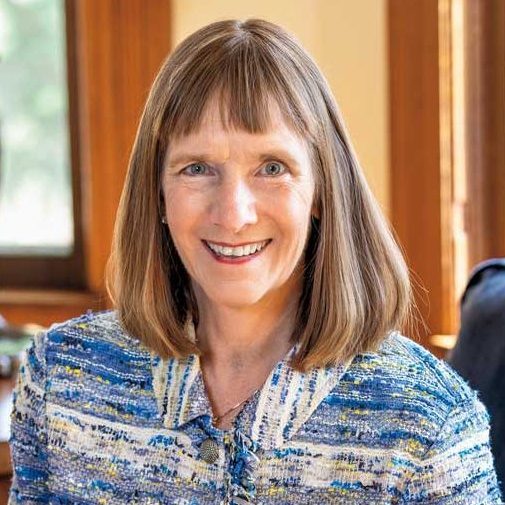
In April, I sent an email message to the alumni and family community, updating you on the College’s efforts to respond to the many challenges presented by the federal administration’s unprecedented attack on academic institutions. As I write this, there have been further changes, and there will no doubt be more between now and the day this magazine hits your mailbox. What remains consistent, however, is the threat these actions present to the bedrock structures of higher education in America.
By using federal funding as a lever to attempt to control colleges and universities, the administration is drastically reconfiguring the longtime partnership between the government and nonprofit higher education. Federal dollars that are either “given to” or “withheld from” Harvard or Columbia are not free gifts. They are contractual obligations for services that universities provide to support identified government goals. Federal financial aid helps to make a college education more accessible to students from less wealthy families. Federal grants support valuable research that leads to discoveries in science, technology, medicine, and other areas vital to the welfare of the country. Withholding such funds to “punish” universities is like penalizing your doctor by refusing to see him when you are sick. He doesn’t get paid, but you also don’t get better.
Similarly, the ongoing effort to impose a significant tax on college and university endowments fundamentally undermines the public understanding of what it means to be a “nonprofit.” As I noted in my Washington Post op-ed in January, any tax on college endowments reduces our ability to serve our students, and in particular to offer robust financial aid. Carleton’s endowment provides 30 percent of our operating budget. Were it not for the generous support of alumni and friends over more than 100 years, students would need to pay more to receive the excellent liberal arts education that Carleton provides. The category of tax-exempt, 501(c)3 nonprofit recognizes that this kind of private philanthropy should be encouraged. The president’s claim that he can unilaterally rescind a university’s tax-exempt status implies that such status is a special privilege, not a descriptive feature of what it means to be managed for charitable, rather than profit-making, purposes.
The immediate financial costs of these actions are very real. But even more concerning is the long-term erosion of a popular conception of higher education as an institution that serves the public interest. It can certainly be argued that higher education as an industry has inadvertently enabled this shift over the past 10 to 15 years by not doing more to hold down costs, and by marketing that focuses on a specific college or university’s perceived benefit to the individual student, rather than the benefits that higher education offers to society as a whole.
At Carleton, we have been working hard to find ways to show our support and demonstrate our value to our local, county, and state communities. The unusual decision last fall to pledge $2 million to the Northfield school district’s high school renovation plan was a visible commitment that has been widely appreciated in the local community. I and members of my senior team have been very active in meeting with state legislators and traveling to D.C. to take part in national advocacy efforts. We recently completed an economic impact study, in partnership with St. Olaf and the Minnesota Private College Council, that demonstrates that Carleton generates $141.8 million in total economic impact in Rice County annually as a result of operations, and student and visitor spending.
The strongest case for Carleton’s value is made by our people: the students, faculty, staff, and alumni who contribute to the cultural and civic life of our city, state, and nation. Whether through students working with HealthFinders Collaborative as part of a civic engagement course, faculty lectures at the Northfield Public Library, or the Sustainability Office’s support of the city’s Zero Waste program, we are integral parts of the local community. It will be important for every college and university to demonstrate that we are not ivory towers on a hill—we are students, neighbors, and citizens, and we are critical to the future of the nation.
—Alison Byerly
